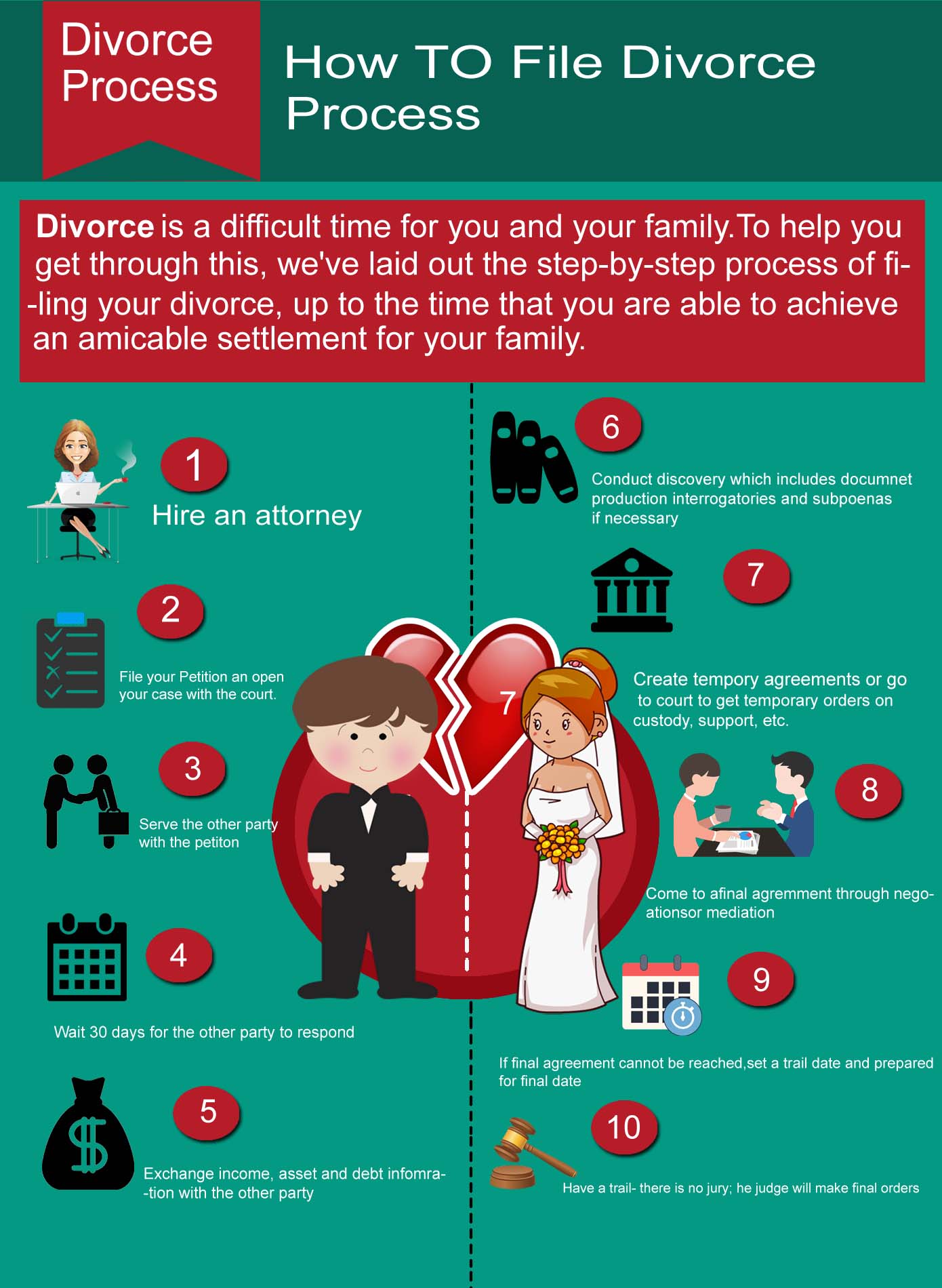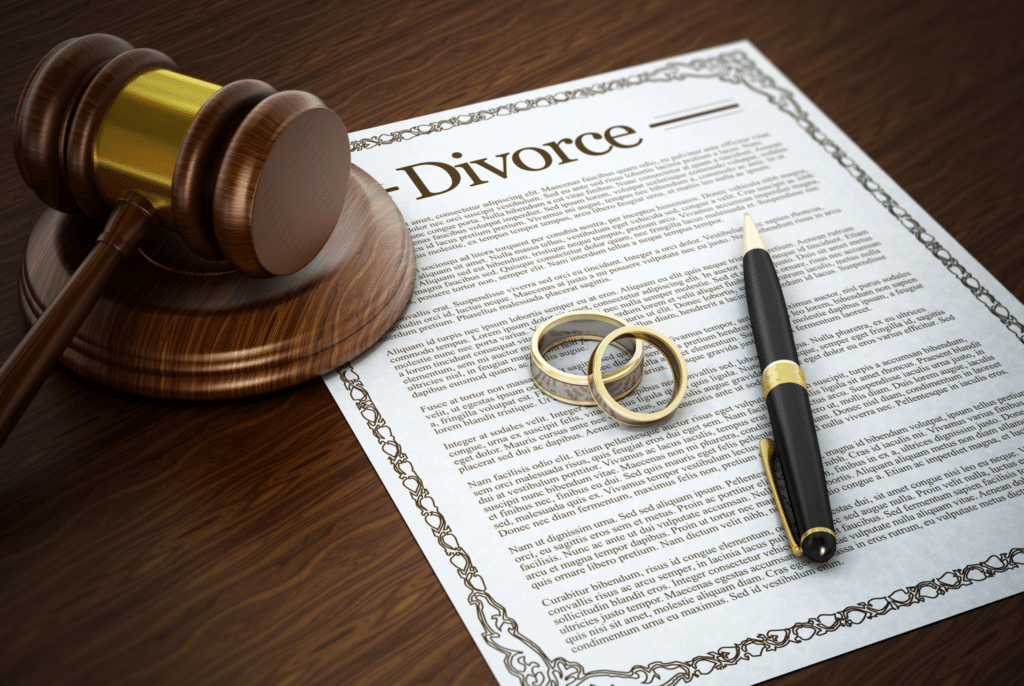Sharing moments of life, whether happy or sad, has become a common practice for many people. We often grab our phones to snap a quick picture of something important, something that feels big. Yet, when it comes to a photo of divorce papers, the situation changes quite a bit. This isn't just any document; it holds a lot of personal details and carries significant emotional weight for everyone involved.
Consider for a moment the sheer amount of personal information these documents contain. They touch upon finances, children, living arrangements, and other very private matters. Taking a picture of them, even for what seems like a simple reason, opens up a lot of questions about privacy and what happens next. It's a situation that requires a good deal of thought, you know, before any picture gets shared.
This discussion will explore what it means to have a photo of divorce papers in your possession, and what considerations come with it. We'll look at the reasons why someone might take such a picture, the possible legal aspects, and the emotional ripple effects. Our aim is to help you think through these things, so you can make choices that protect your privacy and well-being, and that of others involved, too.
Table of Contents
- Understanding Divorce Papers: More Than Just a Document
- Why Take a Picture of Divorce Papers?
- The Legal and Privacy Aspects of Sharing
- Emotional Impact and Considerations
- Safer Ways to Handle Sensitive Information
- Frequently Asked Questions
Understanding Divorce Papers: More Than Just a Document
Divorce papers are, in a way, the official record of a marriage ending. They typically include a lot of personal data. This can be things like names, addresses, financial accounts, and details about any children. It's all there, usually, in black and white.
These documents are not just pieces of paper; they represent a significant life change. They hold the legal terms that dictate how assets are divided, how children will be cared for, and other important agreements. So, basically, they're pretty serious.
Just like how some official forms require the taking of your photograph for identification, divorce papers hold incredibly sensitive personal data that needs careful handling. The collection of such data, as you know, is often mandatory for the examination of important applications, meaning the information contained within these papers is considered essential and, frankly, very private.
Why Take a Picture of Divorce Papers?
There are many reasons someone might snap a photo of these papers. Sometimes, it's a very personal moment, and other times, it's more about practical needs. It's not always about sharing widely, you know.
Personal Reasons and Emotional Release
For some, taking a photo of divorce papers marks a moment of closure. It can be a way to acknowledge that a chapter has ended. This act might provide a sense of relief or a feeling of moving forward, sort of a personal milestone, if you will.
Others might take the picture out of a feeling of shock or disbelief. It's a tangible representation of something very real happening. This can be a way to process the news, or just to make it feel more concrete, which, you know, can be a lot to take in.
Sometimes, it's about wanting to share a personal victory or a difficult truth with a very small, trusted circle. It's almost like saying, "This is happening," and seeking support. It's a very human reaction, in some respects.
Practical and Organizational Uses
A photo can serve as a quick reference. You might need to check a date, a case number, or a specific term without having to pull out the physical documents. This is pretty common for many types of papers, actually.
It can also act as a temporary digital copy. If you're on the go and need to send a part of the document to your lawyer, a quick photo can be handy. This is, you know, just for convenience in a pinch.
For record-keeping, some people might photograph documents before filing them away. It's a way to ensure they have a digital backup, just in case the physical papers get lost or damaged. It's a practical step, really.
Sharing with Trusted People
Sometimes, people share these photos with close family members or very trusted friends. This is often done to explain a situation or to ask for support. It's a way of saying, "This is what I'm dealing with," and seeking comfort, basically.
However, even with trusted individuals, the information contained in the papers remains sensitive. What one person considers private, another might not. So, it's important to think about who truly needs to see it, and why, naturally.
The act of sharing can also be a cry for help. It might be a person reaching out during a difficult time, needing someone to understand the weight of their situation. This is a very human response to stress, in a way.
The Legal and Privacy Aspects of Sharing
Sharing a photo of divorce papers, especially online, brings up several important legal and privacy concerns. It's not just about what you feel like doing; there are rules and risks involved, you know.
Confidentiality and Court Rules
Court documents, including divorce papers, often come with rules about confidentiality. Some details might be sealed or considered private by the court. Sharing these could potentially violate court orders, or something like that.
In some places, there are specific laws about sharing personal information from legal proceedings. It's worth remembering that what seems harmless to you might actually have legal repercussions. So, you know, it's worth checking.
Your divorce agreement itself might contain clauses about not disparaging the other party or not sharing private information. A photo of the papers, if it reveals sensitive details, could potentially break these agreements. This is, in fact, a very real concern.
Data Protection and Personal Information
Divorce papers are full of personally identifiable information (PII). This includes names, dates of birth, financial details, and sometimes even social security numbers. Sharing a photo of these documents exposes all that data, virtually.
Once a photo is online, it's very hard to control where it goes. It can be copied, shared, and stored by others without your knowledge or permission. This means your personal data could spread far and wide, which is, honestly, a bit scary.
Exposing such sensitive information can lead to identity theft, fraud, or harassment. People with bad intentions can use these details for their own gain. It's a risk that's just not worth taking, often.
The Digital Footprint of Sensitive Documents
Every time you share something online, it creates a digital footprint. A photo of divorce papers, once posted, could remain accessible for years, even if you try to delete it. It's like a permanent record, in some respects.
Search engines can index images, and the photo might show up in search results related to your name or the other party's name. This can have long-term consequences for your reputation and privacy. It's something to think about, really.
Future employers, business partners, or even new relationships might stumble upon this information. It's important to consider how such a photo could be perceived by others, you know, in different contexts. It could, arguably, cause issues.
Emotional Impact and Considerations
Beyond the legal and privacy concerns, there's a significant emotional layer to sharing a photo of divorce papers. This act can affect not only you but also everyone connected to the situation. It's a very human thing, after all.
Impact on Yourself
While sharing might feel like a release in the moment, it can lead to regret later. The raw emotions of a divorce can make you do things you wouldn't normally. You might feel exposed or vulnerable after the initial impulse passes, just a little.
The reactions from others, whether supportive or judgmental, can also affect your emotional state. It's hard to predict how people will respond, and their comments might not always be helpful. This is, basically, something to consider.
Constantly seeing the photo or getting comments about it can prolong the emotional pain of the divorce. It might make it harder to move on and heal. It's like keeping the wound open, in a way.
Impact on Family Members, Especially Children
Children, in particular, are very vulnerable during a divorce. Seeing a photo of their parents' divorce papers, especially if it's shared publicly, can be incredibly upsetting and confusing for them. They might not understand why it's out there, you know.
It can make them feel like their private family matters are being put on display. This can cause feelings of shame, anger, or betrayal. Their feelings are, really, very important to protect.
Even if they don't see the photo directly, their friends or other family members might. This can lead to uncomfortable questions or teasing at school, making an already tough situation even harder for them. It's a ripple effect, pretty much.
Impact on Others Who Might See It
The other party in the divorce, your former spouse, also has a right to privacy. Sharing a photo of the papers can be seen as a violation of their personal space and an act of disrespect. It can escalate tensions, too.
It can also affect your co-parenting relationship, if you have children together. Trust and cooperation are already fragile during a divorce. Such an act can further damage any chance of a peaceful future working together. This is, arguably, a big deal.
Friends, extended family, and even acquaintances might form opinions based on what they see in the photo. This can lead to unwanted gossip or speculation, which isn't helpful for anyone involved. It's just not, you know, a good situation.
Safer Ways to Handle Sensitive Information
Instead of taking or sharing a photo of divorce papers, there are much safer ways to manage this sensitive information. Protecting your privacy and the privacy of others is key, really.
If you need a digital copy, scan the documents using a proper scanner or a secure scanning app. This usually creates a higher-quality image and allows you to save it as a PDF. PDFs are often more secure and easier to manage than photos, you know.
Store these digital copies in a secure, encrypted cloud storage service or on an external hard drive. Make sure it's password-protected. Avoid keeping sensitive documents on your phone or in easily accessible places, basically.
When sharing with your lawyer or other legal professionals, use secure portals or encrypted email. They have systems in place to handle sensitive data properly. This is, in fact, what they are set up for.
For emotional support, talk to trusted friends, family, or a therapist. You don't need to show them the actual papers to explain what you're going through. Your words are enough, honestly.
Consider joining a support group where you can share your feelings in a safe, private environment. These groups offer understanding and advice without the need to display personal documents. It's a good alternative, often.
If you need to remember specific details from the papers, write down key points in a private notebook or a secure digital note-taking app. This way, you have the information without exposing the full document. It's a simple, yet very effective method, you know.
Remember, the information contained in these documents is yours and your family's. Protecting it means protecting your future well-being and peace of mind. It's a very important step, at the end of the day.
Frequently Asked Questions
Is it legal to share a photo of divorce papers online?
Sharing a photo of divorce papers online might not be illegal in every single case, but it can definitely violate court orders, confidentiality agreements, or privacy laws. It also exposes a lot of personal information, which can lead to other problems. So, you know, it's generally not a good idea.
What kind of information is typically on divorce papers?
Divorce papers usually contain a lot of very personal details. This includes names, addresses, financial information like income and assets, details about children, and the terms of the divorce settlement. It's all there, basically, for the record.
How can I get a copy of my divorce papers if I lost them?
If you need a copy of your divorce papers, you can usually request them from the court where your divorce was finalized. There might be a small fee involved. You could also ask your lawyer, if you had one, as they typically keep copies. Learn more about legal document retrieval on our site, and link to this page understanding court records for more information.
For further reading on privacy in legal matters, you might find resources from reputable legal aid organizations helpful, like the American Bar Association's Family Law Section.



Detail Author:
- Name : Otis Cartwright
- Username : timmothy.damore
- Email : kayli99@reichert.com
- Birthdate : 1984-11-04
- Address : 3677 Volkman Plaza North Kayaland, DE 80777
- Phone : 1-661-295-8250
- Company : Kertzmann-Zemlak
- Job : Agricultural Sciences Teacher
- Bio : Deserunt cumque aut et sunt sapiente necessitatibus nam. Harum est est est consequatur. Et in earum saepe. Eum sit in consequuntur eos temporibus. Porro est corrupti quia modi molestiae praesentium.
Socials
facebook:
- url : https://facebook.com/devon_id
- username : devon_id
- bio : Aperiam optio delectus quia voluptatum vero consectetur ut.
- followers : 4671
- following : 1552
instagram:
- url : https://instagram.com/devon_dev
- username : devon_dev
- bio : Accusantium id voluptas nihil cum sed amet. Id non et animi dolorem exercitationem cumque.
- followers : 802
- following : 2888

